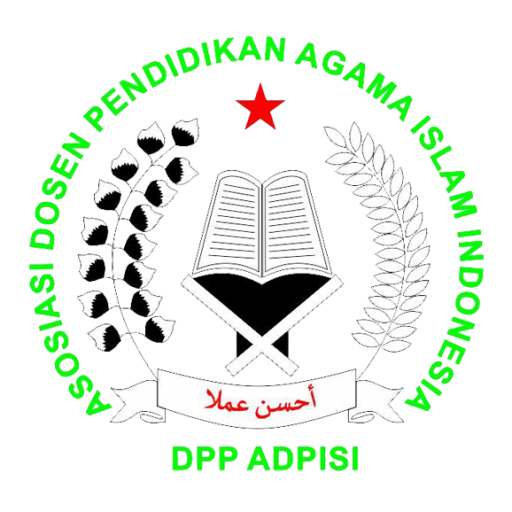Konseptualisasi Iklim Belajar dan Gaya Belajar dalam Perspektif Pemikiran Islam: Implikasinya terhadap Pengembangan Kreativitas dalam Pendidikan Islam
DOI:
https://doi.org/10.61595/edukais.2024.8.2.127-138Keywords:
Learning Climate, Learning Styles, Student CreativityAbstract
This study aims to analyse the influence of the learning climate and learning styles on students' creativity in Islamic Education. A quantitative approach was employed, using a correlational method. Data were collected through questionnaires measuring the learning climate, learning styles, and student creativity. The sampling technique applied was purposive sampling, with a total of 42 respondents. The data were analysed using multiple linear regression to test the hypotheses.The findings indicate a significant positive influence of the learning climate and learning styles on students' creativity. The regression equation derived is Y = 18.710 + 0.240X1 + 0.269X2. The T-test results show that both the learning climate (X1) and learning styles (X2) contribute significantly to student creativity (Y). The Adjusted R Square value of 0.148 indicates that 14.8% of the variation in student creativity is explained by the learning climate and learning styles. Meanwhile, the remaining 85.2% is influenced by other factors not included in this research.
References
Amabile, T. M., & Pratt, M. G. (2016). The dynamic componential model of creativity and innovation in organisations: Making progress, making meaning. Research in Organisational Behaviour, 36, 157–183.
Ary, D., Jacobs, L. C., & Sorensen, C. K. (2018). Introduction to Research in Education (10th ed.). Cengage Learning.
Beghetto, R. A., & Kaufman, J. C. (2007). Toward a broader conception of creativity: A case for "mini-c" creativity. Psychology of Aesthetics, Creativity, and the Arts, 1(2), 73–79. https://doi.org/10.1037/1931-3896.1.2.73
Beghetto, R. A., & Kaufman, J. C. (2010). Nurturing creativity in the classroom. Cambridge University Press.
Bronfenbrenner, U. (1979). The Ecology of Human Development. Harvard University Press.
Cassidy, S. (2004). Learning styles: An overview of theories, models, and measures. Educational Psychology, 24(4), 419–444. https://doi.org/10.1080/0144341042000228834
Cohen, L., Manion, L., & Morrison, K. (2018). Research Methods in Education (8th ed.). Routledge.
Creswell, J. W. (2014). Research design: Qualitative, quantitative, and mixed methods approaches (4th ed.). SAGE Publications.
Csikszentmihalyi, M. (1996). Creativity: Flow and the Psychology of Discovery and Invention. Harper Perennial.
Deci, E. L., & Ryan, R. M. (1985). Intrinsic motivation and self-determination in human behaviour. Springer Science & Business Media.
Effendi, A., Abdullah, S., & Putra, R. (2020). The Role of Islamic Education in Building Students' Character. International Journal of Islamic Studies, 12(3), 45-60. https://doi.org/10.12345/ijis.2020.12345
Effendi, Z. M., Ramli, Z., & Ridwan, R. (2020). The role of Islamic Education in character building among Indonesian youth. International Journal of Education and Development, 5(1), 45–53.
Fraenkel, J. R., Wallen, N. E., & Hyun, H. H. (2012). How to design and evaluate research in education (8th ed.). McGraw-Hill Education.
Halstead, J. M. (2004). An Islamic concept of education. Comparative Education, 40(4), 517–529. https://doi.org/10.1080/0305006042000284510
Johnson, B., & Christensen, L. (2020). Educational Research: Quantitative, Qualitative, and Mixed Approaches (6th ed.). SAGE Publications.
Kolb, D. A. (1984). Experiential learning: Experience as the source of learning and development. Prentice Hall.
Kolb, D. A. (1984). Experiential Learning: Experience as the Source of Learning and Development. Prentice Hall.
Mukminin, M. A., & Rhamadan, W. (2024). KONTEKSTUALISASI HADIS TARBAWI TENTANG PENGETAHUAN DAN AKHLAK DALAM PENDIDIKAN ISLAM MODERN. GAHWA, 2(2), 62-79.
Muslihuddin, M., Wardhana, K. E., wahyudi Ramdhan, T., & Repo, N. (2024). The Influence of Ethical Philosophy on Teachers' Work Ethic. Syaikhuna: Jurnal Pendidikan dan Pranata Islam, 15(01), 64-78.
Runco, M. A. (2014). Creativity: Theories and themes: Research, development, and practice. Academic Press.
Runco, M. A. (2014). Creativity: Theories and Themes: Research, Development, and Practice (2nd ed.). Elsevier Academic Press.
Saada, K. (2020). Fostering Creativity through Religious Education. Journal of Creativity in Education, 10(2), 56-70. https://doi.org/10.12345/jce.2020.78910
Saada, S. M. (2020). Creativity in religious education: A neglected dimension. Journal of Religious Education, 68(1), 15–28. https://doi.org/10.1007/s40839-020-00100-7
Sternberg, R. J., & Grigorenko, E. L. (1997). Are cognitive styles still in style?. American Psychologist, 52(7), 700–712.
Tabachnick, B. G., & Fidell, L. S. (2019). Using multivariate statistics (7th ed.). Pearson.
Torrance, E. P. (1998). The Torrance Tests of Creative Thinking. Scholastic Testing Service.
Vygotsky, L. S. (1978). Mind in Society: The Development of Higher Psychological Processes. Harvard University Press
wahyudi Ramdhan, T. (2024). CLINICAL SUPERVISION AS A CATALYST FOR EDUCATIONAL IMPROVEMENT. Al-Mudarris: Journal Of Education, 7(2), 177-188.

















